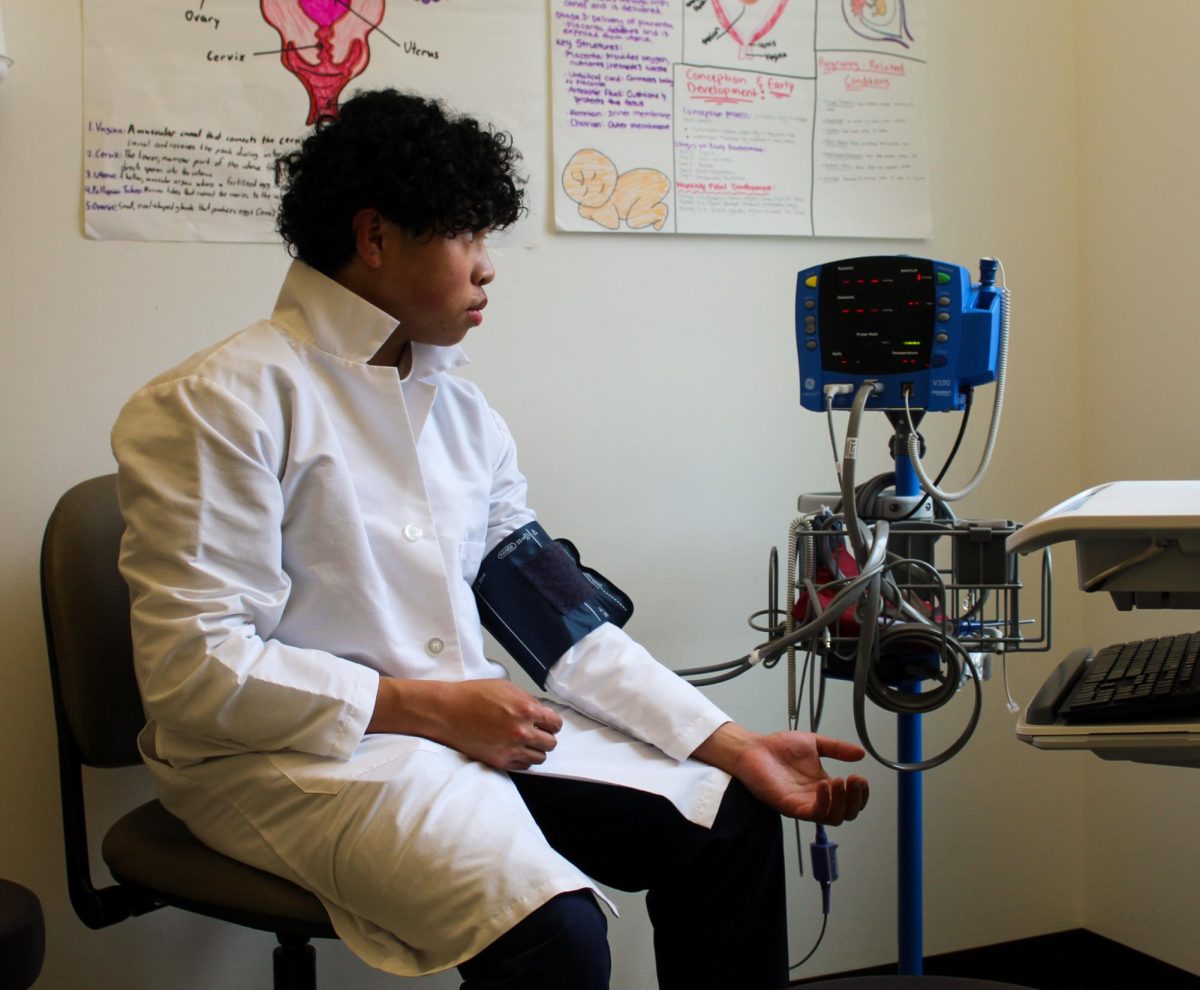Many students participate in Washington State’s WaNIC and Running Start programs to try new things and train for their desired career. The Washington Network for Innovative Careers, which students refer to as WaNIC, has partnered with Seattle-area schools for over 20 years to offer technical career training and internship opportunities to high schoolers. The Running Start program, founded in 1990, allows juniors and seniors to take college-level courses at local community colleges and offers students future college credit. Students with a wide range of interests and goals take part in WaNIC and Running Start.
“You get some real experience that you can [use to] decide, ‘I do want to pursue this more, or not,’” said College and Career Counselor Jim Allen (he/him), a primary advisor for WaNIC students.
Allen said if a student hopes to attend very selective schools, then WaNIC is likely not their best option as these schools prefer seeing students advance in traditional classes. Many of these schools won’t give college credit for WaNIC classes.
Washington State schools participating in the Washington Guaranteed Admissions Program guarantee admission to students with a GPA of 3.0 or higher. Allen said that enrolling in a WaNIC class is an ideal option for students interested in these schools.
Aside from an alignment with educational aspirations, students participate in WaNIC and Running Start for an introduction to the college experience and to pursue a possible future career. Running Start student and junior Chloe Rebh (she/her) said she likes the culture and learning environment of a college. Rebh said it feels more professional because students are expected to independently manage their time and work.
“There aren’t as many reminders, and you’re acting like an adult in college,” Rebh said.
For her first quarter class, she’s taking the course “Introduction to College,” which teaches skills to succeed in a college environment. For the winter and spring quarters, she enrolled in U.S. History, equivalent to an APUSH class, and English 101, an introductory college-level class. Rebh said she views Running Start as a stepping stone for higher education.
“It just gives a pathway to what college and university is like in general, while still having control over all that happens in high school,” Rebh said.
Senior Dasha Polevoy (she/her) enrolled in her first year of Running Start this year to plan for her future. Polevoy intends to major in business in college. She’s taking an introductory cultural studies class with classmates from different cultures and countries, such as Kenya, Kazakhstan and Ukraine. Polevoy said the connections across cultures and nationalities will help her build relationships in a diverse workforce in the future.
In addition to furthering her career goals, Polevoy said she’s grateful for the life skills Running Start has taught her. She said the program pushes her to improve her habits, so she can take on bigger things.
“If I have a job in the real world outside of high school, I can’t just push my deadlines or do everything in the last-minute because I will have other factors. If I have a family, I will have to spend my time with them, and I can’t keep doing what I was doing before,” Polevoy said.
Rather than procrastinating on completing assignments, Polevoy said she uses her professors’ high expectations and detachment from managing students as motivation.
Polevoy noticed her new method of managing her time allows her to complete her best work. She said Running Start pushes her to the best of her abilities rather than allowing her to leave large amounts of work to the last minute.
In the context of her transition into adulthood, Polevoy said her environment inspires her to adopt adult behaviors.
“I think that being in college does push you to be more of an adult because you’re surrounded by mostly adults and other Running Start students,” Polevoy said.
Despite the advantages of the WaNIC and Running Start programs, students said their benefits come with the challenge of adjusting to spending less time in high school. Three out of five of the students interviewed said they felt disconnected from the high school community.
“One of my friends, she also does Running Start. We didn’t get any notice of the senior photo, like the big one outside. And then people were talking about it. We were like, ‘oh, we missed out on that.’ And it was kind of upsetting,” Polevoy said.
Despite feeling more isolated from the high school community, Polevoy said she likes Running Start because she’s comfortable with being alone. In her college classes, she said it’s common for Running Start students to not know anyone else in the class. She found it is necessary to be comfortable with meeting new people and entering new social environments without friends by your side.
Multiple WaNIC and Running Start students said maturity is a useful trait that the program nurtures. Students in these programs have to adapt to new circumstances frequently, whether it’s learning new study habits or adjusting their future career and academic plans.

“WaNIC has prepared me a lot more than just regular school,” said senior Noah Cashell (he/him), who’s been in WaNIC’s automotive technology program since his sophomore year. “I would say it has made me rethink how I have to have time management skills to get to different schools; how I have to manage my time, manage grades, make sure everyone’s happy, do my job at the WaNIC program and make sure that my grades stay up.”
There can be circumstances that cause students to drop out of these programs. Allen said common reasons students drop out of WaNIC include failure to get into their desired program due to limited class sizes and regrets about committing to two or three high school periods each day in addition to a WaNIC class.
Senior Elsa Anneberg (she/her), a second-year WaNIC student studying Art and Animation at Digipen, intends to study art in college. She said the two years of her WaNIC art class will look good on her transcript. However, she’s considering dropping out of the program. Anneberg said the three-hour-long work periods, increasing pace of her class, staffing issues and an early commute are some of the reasons she is considering dropping WaNIC.
“Typically, it’s because the program isn’t what they expected, more so than particular difficulties within the WaNIC program,” Allen said of students’ decision to drop out. “Most students really enjoy their experience.”












